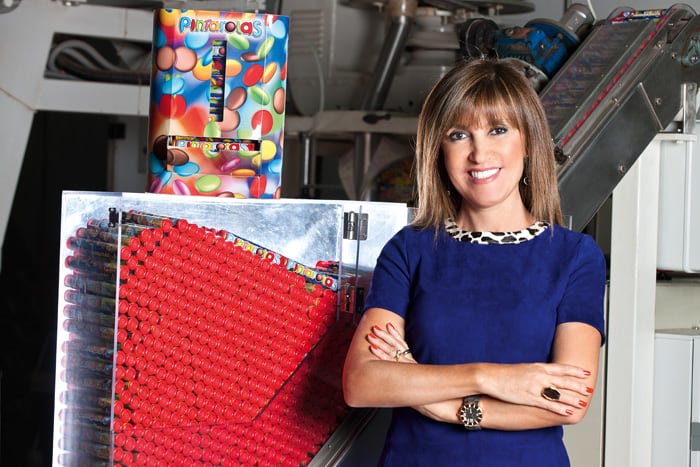In an exclusive interview with ConfectioneryNews.com, Imperial CEO Manuela Tavares de Sousa, said that confectioners were jostling for position in debt-ridden Portugal and trying to offset the private label threat with functional innovations and nostalgic products.
Private label rise
“Consumers are more focused on price than ever before, with a clear shift to private label product. The market is highly competitive, namely in the bars, dragees and pralines segment, with all the major players struggling to maintain their positions,” she said.
“To face this environment, the leader brands are betting on innovation with relevant differentiation from the standard flavors.”
Stand-out with exotic flavors
“Exotic Flavors, functional bars with health benefits, convenience formats and new fillings combinations are on the rise,” she said.
Imperial recently added a passionfruit chocolate bar to its Regina brand to build its 2.2% share of the Portuguese confectionery market.
According to Euromonitor, the firm is seventh placed in the market, behind the leader Mondelez International, which commands a 15.7% share.
Although Imperial’s own brands could suffer from the rise of private label, it also stands to benefit as 20% of its business is contracting manufacturing for retailers.

Revival trend
Another emerging trend Tavares de Sousa sees is nostalgia.
“We can feel a strong revival trend, which is very usual in a crisis, as people tend to recover the memories from past life stages,” she said.
Several brands have launched vintage editions of their products, she said.
Portuguese market declines
According to Tavares de Sousa, Portugal’s confectionery market declined more than 5% in 2009 and 2010 and continued the slump last year.
She said that Imperial however had managed to grow sales 3% in 2011 and posted 18% sales gains in the first half of 2012.
Attractive export destinations for Imperial
She added that Imperial grew 20% export markets in the first half of this year.
“There are some very attractive markets for Imperial like Brazil, Angola, Mozambique, South Africa and Magreb, where we have been able to market our products and develop our strategy closely with local suppliers, “ said Tavares de Sousa.
However, she said that developed markets, such as those in Western Europe, the US and Japan, presented higher entry barriers and were facing growth difficulties.
